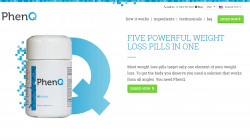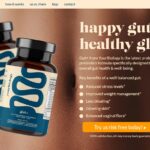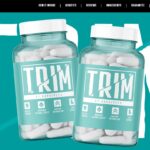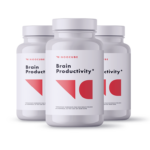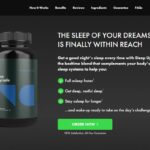Anyone would love to have long and luscious hair, but many people struggle with several issues that prevent them from having the hair of their dreams. Some common problems are getting brittle and damaged hair that breaks too easily, dull hair that lacks the shine we know and love, and premature aging that causes hair to become gray and fall sooner than expected.
If any of these problems affect you and you want to change them, you don’t have to spend hundreds of dollars on expensive treatments and hair products. Perhaps, all you need is a better diet, as you can get most of the nutrients you need to have beautiful hair through the food you consume.
That’s why we put together the following list of the best foods for hair growth. Keep reading to learn more about how to get the hair of your dreams.
1. Best Foods for Hair Growth – How to Get the Hair of Your Dreams
1.1 Eggs
Eggs are a rich source of biotin and protein, two substances crucial for hair growth.
Eating enough protein is essential for good hair development because protein is a substantial component of hair follicles. A diet deficient in protein has been shown to speed up hair loss.
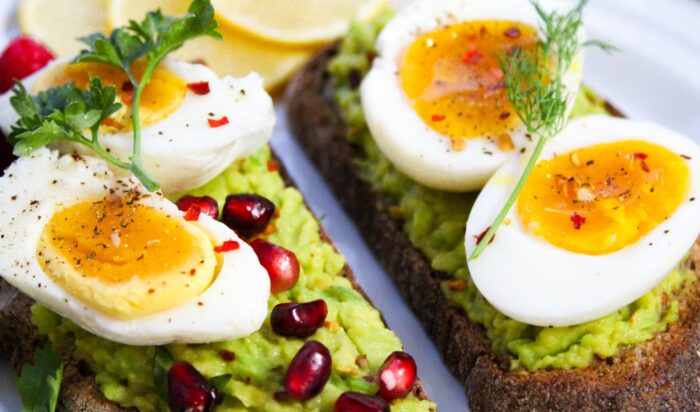
Biotin is incredibly important for your body, as it helps synthesize keratin, the most prevalent hair protein, which is why biotin supplements are popular for promoting hair growth. Also, research indicates that those with biotin deficiency who consume biotin have healthier hair growth.
If your diet is nutritious and balanced, having a biotin shortfall is uncommon, and there isn’t much evidence that increasing biotin intake benefits those who already have adequate levels of the vitamin.
1.2 Green Leafy Vegetables
Green leafy vegetables are a good source of potassium, folate, carotene, and vitamins A and C. The body receives keratin from green leafy vegetables, which strengthen hair follicles. Iron, a vital element that delivers oxygen and minerals throughout the body, is also abundant in green leafy vegetables. Low iron levels prevent hair follicles from receiving all the nutrients they need, which slows down hair development and weakens hair strands. Consequently, boosting your iron intake can significantly enhance the condition of your hair. On the other hand, sebum, which keeps the scalp moist and healthy, is also produced thanks to iron.
1.3 Vitamin C-Rich Citrus Fruits
Vitamin C is abundant in citrus fruits, including lemons, oranges, and grapefruits. In addition to being a great vitamin C and collagen source, they also strengthen hair. Vitamin C enhances collagen formation, boosts scalp circulation, and shields the hair follicles from the oxidative harm caused by free radicals. Also, it facilitates iron absorption, enhancing scalp blood flow, promoting hair growth, and nourishing. These elements contribute to thick and healthy hair development. Citrus fruits and berries are among the finest foods for hair growth and thickness because they are high in vitamin C.
1.4 Seeds and Nuts
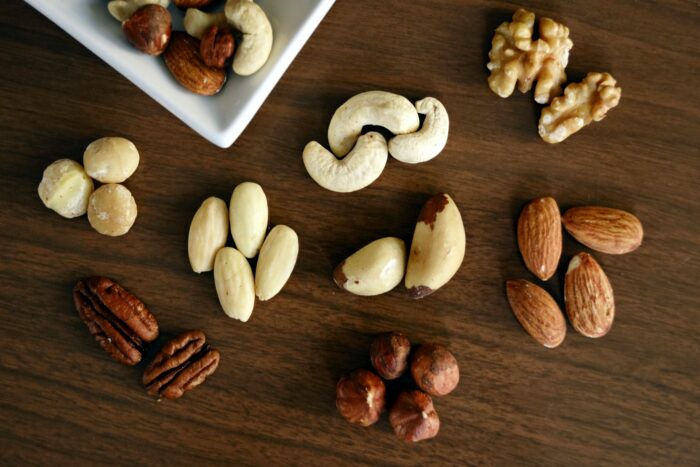
Nuts are tasty, practical, and nutritious, which encourages healthy hair development.
They include a range of vitamins, including zinc, fatty acids, and vitamin B. Moreover, it has been proven that not taking enough of these nutrients can cause hair loss.
Seeds have a lot of nutrients and few calories. Several minerals, including selenium, zinc, and vitamin E, are necessary for healthy hair development.
Over half of your daily vitamin E requirements can be met by an ounce of sunflower seeds, including an optimal amount of vitamin B that is good for your hair.
Moreover, several seeds, such as chia and flaxseeds, include omega-3 fatty acids.
1.5 Carrots
Vitamin A has several advantages for your hair and can be easily found in carrots. Body cell development, including hair formation, depends on vitamin A, making it the ideal meal for promoting rapid hair growth. Moreover, it increases sebum production in the scalp, which keeps your hair hydrated and healthy. Moreover, carrots enhance your brain’s blood flow and delay premature graying.
1.6 Whole Grain
Iron, zinc, biotin, and vitamin B can all be found in whole grains. Amino acids, the body’s building blocks, need biotin to work correctly. Moreover, biotin encourages the growth of healthy, thick hair. Also, since fortified whole grains are a good source of iron, you can include them in your diet. In order to have healthy and thick hair, it is essential to keep iron levels in the body at ideal levels, as this enhances circulation in hair follicles.
1.7 Soybeans
According to studies, some substances in soybeans can encourage hair development. Spermidine, a substance prevalent in soybeans, is one of them.
A spermidine-based dietary supplement, for instance, was found to lengthen the anagen period of active hair growth in a trial of 100 individuals. A hair follicle will continue to develop as long as it is in the anagen phase.
According to other research, spermidine can help develop human hair. However, further studies are required before health professionals can recommend spermidine intake, as this study is still in its early stages.
1.8 Avocado
Avocados are delicious and fantastic source of healthy fats.
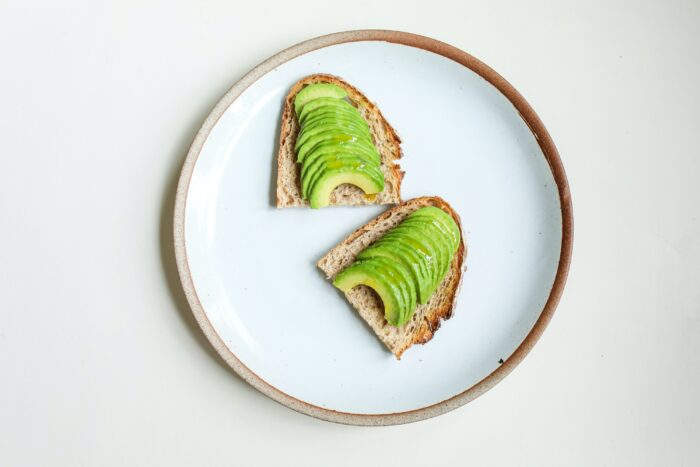
Moreover, they are a great vitamin E source, promoting hair development. 28% of your daily vitamin E requirements can be covered by one avocado.
Vitamin E is an antioxidant that, like vitamin C, eliminates free radicals to lessen the risk of oxidative damage.
There is mixed information about avocado’s efficacy, but some studies have discovered reduced vitamin E levels in those who are experiencing hair loss.
In older research, taking a vitamin E supplement for eight months resulted in 34.5% greater hair growth in those experiencing hair loss.
Moreover, vitamin E shields the scalp from oxidative stress and damage. A scalp with damaged skin may have fewer hair follicles and poorer-quality hair.
1.9 Cinnamon
Your hair will benefit significantly from this spice. Along with promoting hair development, it makes your hair look and feel better. Cinnamon’s polyphenols function as organic antioxidants and have antibacterial qualities that protect the scalp against infections and dandruff. However, excessively concentrated cinnamon oil can cause allergies in some people. Before using cinnamon, performing a patch test is a good idea. The vitamins A, C, riboflavin, and niacin in cinnamon help improve the health of your hair.
1.10 Berries
Berries are a great source of vitamins and nutrients that help with hair growth. One of these has powerful antioxidant properties: vitamin C.
Antioxidants can guard your hair follicles against damage from harmful substances known as free radicals. Both the human body and the environment contain these compounds.
One cup of strawberries, for instance, has an impressive 85 milligrams of vitamin C, which is up to 113% of your daily requirements.
Moreover, vitamin C helps your body produce collagen, which helps thicken your hair to avoid getting weak and brittle strands.
1.11 Spinach
Spinach is a green vegetable high in iron, folate, vitamins A and C, and other nutrients necessary for hair growth.
Studies show that vitamin A is essential for the growth of hair. Nevertheless, consuming too much vitamin A may cause hair loss.
You should be able to get all the vitamin A you require by eating meals abundant in this essential component. A cup of spinach satisfies up to 20% of your daily vitamin A requirements.
This is a fantastic plant-based supply of iron, which is essential for hair growth. Iron supports tissue growth and repair by helping red blood cells transport oxygen throughout the body to promote metabolism.
1.12 Fatty Fish
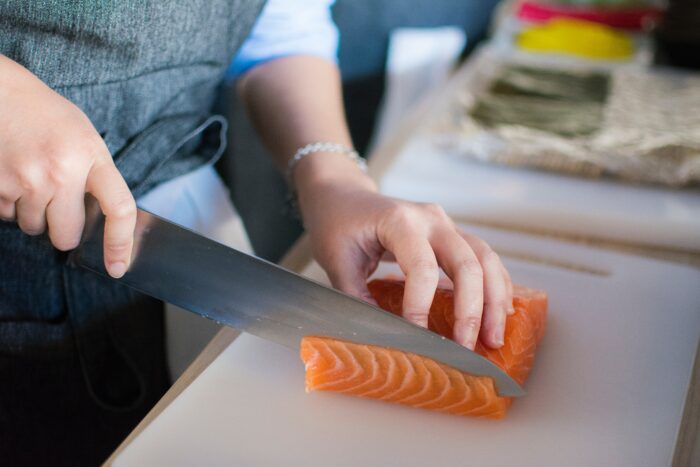
Fatty fish have nutrients that help promote hair growth. They are excellent sources of omega-3 fatty acids, which studies have proven to encourage hair growth.
A recent study that included 120 women found that a supplement containing omega-6 and omega-3 fatty acids decreased hair loss and improved hair density.
However, there aren’t enough correlative studies on the connection between omega-3 fatty acids and hair growth. Therefore, more proof is needed before health experts can make any suggestions.
Fatty fish is a great source of selenium, vitamin D3, B vitamins, and protein, but it also has additional nutrients that encourage hair growth.
1.13 Sweet Potatoes
Sweet potatoes contain a lot of beta-carotene. The body changes this chemical into vitamin A, which is necessary for having healthy hair.
Beta carotene in a typical sweet potato can provide up to 160% of your daily vitamin A needs. Studies suggest that vitamin A may affect sebum production, a crucial factor in hair health.
Although a deficiency in vitamin A might result in hair loss, ingesting too much of it can potentially cause baldness.
In order to meet your vitamin needs and prevent overconsumption, eat foods high in vitamin A, including sweet potatoes.
1.14 Sweet Peppers
Sweet peppers are a fantastic source of vitamin C, which has a high level of antioxidants and helps to grow hair.
Your hair strands can be strengthened by collagen, and vitamin C can boost collagen synthesis. Moreover, it protects hair strands from oxidative damage thanks to its strong antioxidant properties.
Oxidative stress results from the body’s antioxidant defense system being overwhelmed by free radicals. This has been linked to hair loss and early graying.
Sweet peppers are also an excellent source of vitamin A. This vitamin affects sebum production, which supports healthy hair and is essential for hair development.
1.15 Oysters
Oysters are one of the best food sources of zinc, which promotes the development and repair of hair.
Lack of zinc in your diet can result in telogen effluvium, a common but treatable type of hair loss brought on by a deficiency in minerals.
Studies show that a zinc supplement can stop hair loss caused by zinc deficiency.
Consuming too much zinc, however, might be harmful. Consequently, since food includes small levels of zinc, getting zinc through food sources, such as oysters, is better than taking supplements.
1.16 Beans
Beans are an excellent plant-based protein source necessary for healthy hair development.
Like oysters, they are a strong source of zinc, which supports the cycle of hair development and repair. Up to 14% of a woman’s daily zinc requirements and 10% of a man’s zinc needs are met by a 3.5-ounce portion of black beans.
Iron, biotin, and folate are just a few additional nutrients they supply for strong, healthy hair.
In addition to these advantages, beans are also very adaptable and reasonably priced, making them a simple addition to your diet.
1.17 Meat
Meat is a common food in many people’s diets. Luckily, it is packed with nutrients that may promote hair development.
Meat’s protein helps repair and strengthen hair follicles and promotes growth. A cooked 3.5-ounce plate of sirloin steak has up to 29 grams of protein.
Particularly red meat is abundant in an iron type that is simple to digest. This element helps the red blood cells provide oxygen to all body cells, including hair follicles.
Nevertheless, the overconsumption of red meat, mainly processed red meat, has been associated with an elevated risk of type 2 diabetes, colon cancer, and cardiovascular disease in both sexes.
Still, hair loss has been related to iron and protein deficiencies.
1.18 Greek Yogurt
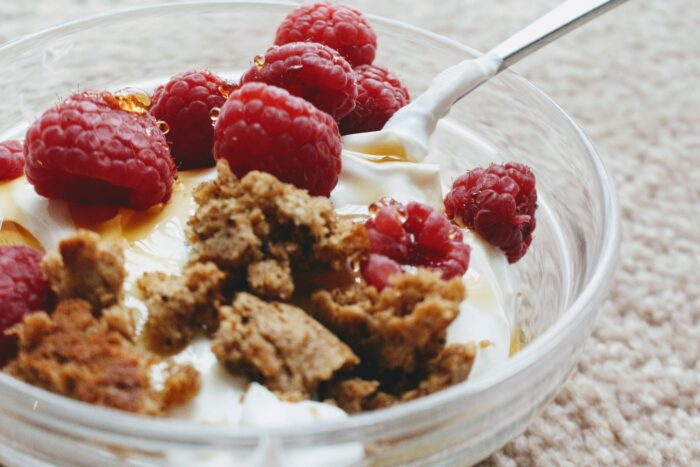
Greek yogurt, without added sugar, is loaded with protein, which is essential for healthy hair. Moreover, plain Greek yogurt is incredibly adaptable and can be used to make savory dishes or a substantial breakfast.
Yogurt’s probiotics—good bacteria that aid in food absorption and support the healthy development of your hair cycle—are its most valuable component. Probiotics have been proven to encourage hair development in recent research.
A great piece of advice is to choose products with at least five different bacterial cultures per 6-ounce serving.
1.19 Pumpkin
We don’t need another excuse to like pumpkins, but it is great to know they are packed with nutrients that help your hair stay healthy. Your beloved squash only has 83 calories and less than a gram of fat per half cup. It also contains a lot of iron and beta-carotene, a precursor to vitamin A, which is crucial for healthy hair development. Vitamins C and E, which support cell repair in your body, are also abundant in pumpkin.
Magnesium is another underappreciated element important for more than 600 bodily processes, including promoting healthy hair development. This element has a significant role in protein synthesis and the hair growth cycle.
1.20 Iron-Fortified Cereal
Hair loss might be a result of not getting enough iron. You can get this crucial component in soy, lentil products, fortified cereal, grains, and pasta. There is plenty of it in beef, organ meats, dark leafy vegetables, and shellfish.
1.21 Lean Poultry
Lack of protein causes hair growth to “rest.” You may lose hair because it stops growing, and the older hairs fall out. Choose lean meats, such as chicken or turkey, which contain less saturated fat than beef and hog and are more beneficial for your overall health.
1.22 Chia Seeds
Chia seeds are loaded with nutrients. They include gut-friendly fiber and disease-preventive antioxidants. Chia is a vegan source of omega-3s and is regarded as a whole protein because it contains 20% more protein than soybeans. This ingredient can keep your scalp healthy and encourage the growth of thick, lustrous hair.
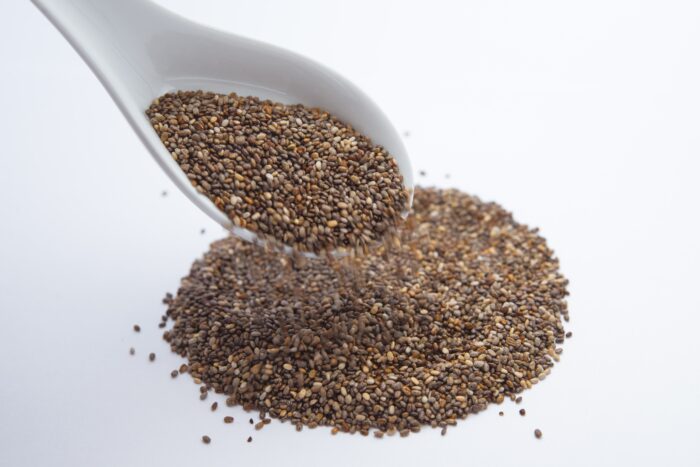
Moreover, chia seeds include zinc and copper, two essential elements for healthy hair. Zinc is considered an enzyme activator that promotes protein cleavage, an essential process for hair development. By enlarging the follicle size, copper helps to regenerate new hair development and can make your hair feel thick and abundant.
1.23 Buckwheat
You can increase the amount of zinc, iron, and B vitamins in your diet to keep your hair healthy. There are also many other advantages of substituting 100% of your refined carb intake with whole grain alternatives. Whole grain buckwheat is nutritious gluten-free seed rich in antioxidants and fiber, which can help you feel fuller with less food. Use buckwheat-based Udon when preparing ramen or other noodle meals, or use it as a substitute for oatmeal or rice.
The “beauty mineral” is called “silica.” It is a trace element present in large amounts in both whole-grain foods and the human body. This mineral strengthens your hair and stops hair thinning.
1.24 Collagen
Collagen has received a lot of attention, and many scientists agree that it’s one of the best foods to include in your diet if you want to grow your hair. Furthermore, collagen helps develop healthy skin and hair by strengthening the connective tissue that keeps everything in place. Our bodies naturally produce collagen, but as we age, it decreases, so it’s vital to supplement this loss through nutrition. Excellent options include organic bone broth or collagen powders.
1.25 Seaweed
Seaweed is an excellent iodine source for a healthy thyroid and hair. In addition, seaweed promotes the growth of dermal papilla cells and inhibits 5-alpha reductase, an enzyme in the hair follicle that shrinks hairs and contributes to hair loss. A great way to consume this is by adding a bag of seaweed chips to your lunchbox before work.
2. The Bottom Line
Dealing with hair problems can be a huge hassle, but changing your diet can easily fix most problems. Although you can add any of these ingredients to your food without a problem, we recommend going to the doctor to get a much more accurate solution and to find out what’s wrong with your hair.

